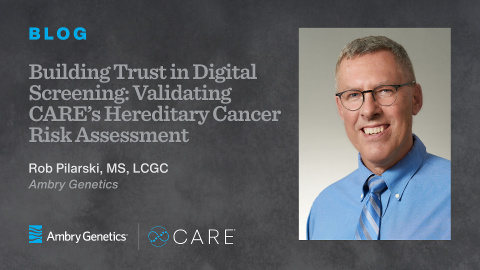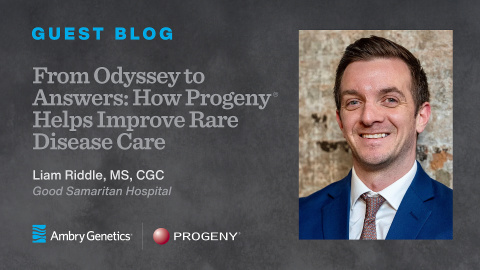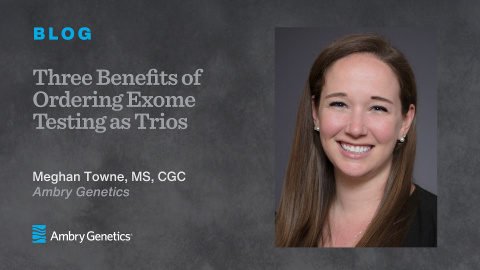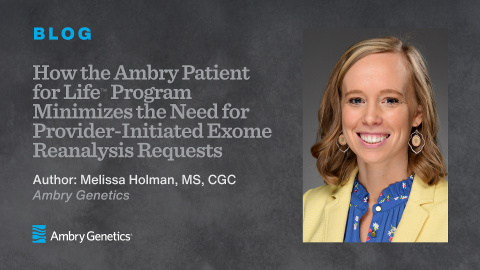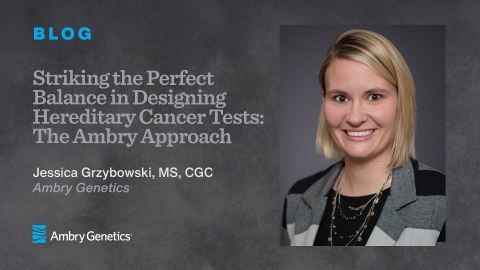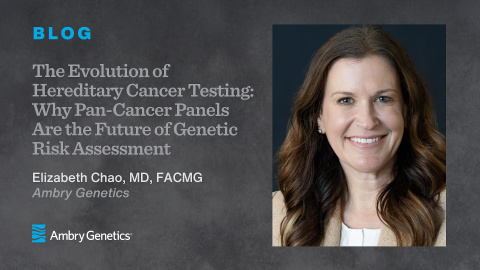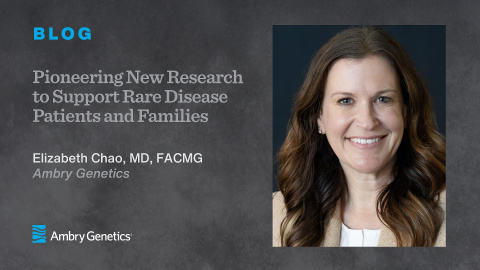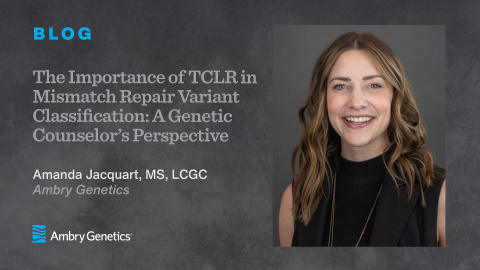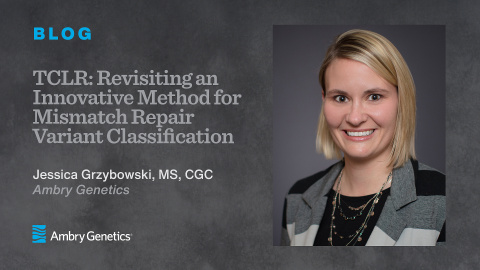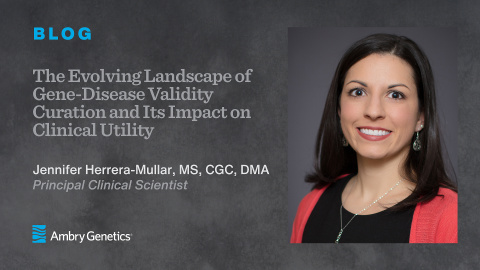- By Robert Pilarski, MS, LGC
- Posted June 26, 2025
Building Trust in Digital Screening: Validating CARE’s Hereditary Cancer Risk Assessment
As a certified genetic counselor who spent eleven years on the National Comprehensive Cancer Network® (NCCN®)'s committee for the NCCN Clinical Practice Guidelines in Oncology (NCCN Guidelines®) for breast, ovarian, and pancreatic cancers, I've witnessed firsthand the challenges clinicians face in accurately identifying patients who meet criteria…
- By Liam Riddle, MS, CGC
- Posted February 28, 2025
From Odyssey to Answers: How Progeny Helps Improve Rare Disease Care
At some point in life, everyone will seek medical attention for themselves or a loved one. Often, the cause for concern isn't immediately clear, marking the beginning of what could be a rare disease journey. Each year on the final day of February, Rare Disease Day raises awareness for these individuals and their experiences. As genetic counselors,…
- By Meghan Towne, MS, CGC, LCGC
- Posted February 19, 2025
Three Benefits of Ordering Exome Testing as Trios
Exome sequencing, which assesses the protein coding sections of all ~20,000 genes, is an effective genetic test for a variety of clinical indications, but especially for children with neurodevelopmental disorders. Because the testing range is so broad, it is important to have as much supportive evidence as possible to efficiently identify clinically…
- By Melissa Holman, MS, CGC
- Posted November 15, 2024
How the Ambry Patient for Life™ Program Minimizes the Need for Provider-Initiated Exome Reanalysis Requests
Understanding Exome Reanalysis Exome reanalysis is a process that involves assessing all 20,000 of a patient's genes, despite only having a concrete understanding of the functions of around 5,000 to 6,000. However, the gap in this understanding is rapidly closing. Scientific research characterizes approximately one new gene every two days. Therefore,…
- By Jessica Grzybowski, MS, CGC
- Posted October 31, 2024
Striking the Perfect Balance in Designing Hereditary Cancer Tests: The Ambry Approach
In the fast-moving world of genetic testing, designing and updating a hereditary cancer portfolio and each test it includes is a balancing act. It’s about making sure we include genes that matter clinically while steering clear of those with uncertain links to cancer. At Ambry, we’ve perfected this balancing act by sticking to a process rooted…
- By Elizabeth Chao, MD, FACMG
- Posted October 17, 2024
The Evolution of Hereditary Cancer Testing: Why Pan-Cancer Panels Are the Future of Genetic Risk Assessment
Hereditary cancer testing has changed dramatically over the past decade, reshaping how healthcare professionals diagnose and manage genetic risks. Initially, testing focused on specific genes like BRCA1 and BRCA2, linked to breast and ovarian cancers. These gene tests were quite limited, only looking at a small set of mutations…
- By Elizabeth Chao, MD, FACMG
- Posted October 10, 2024
Pioneering New Research to Support Rare Disease Patients and Families
Unlocking the mysteries of the genome is our life’s work. Since the launch of our first clinical genomic test for identifying the genetic cause of rare diseases, we’ve sought ways to leverage our technology and expertise to support clinicians and the patients and families they serve. As genomic technologies improve, we gain new tools that…
- By Amanda Jacquart, MS, LCGC
- Posted July 31, 2024
The Importance of TCLR in Mismatch Repair Variant Classification: A Genetic Counselor’s Perspective
In the field of genetic counseling and testing, the stories of patients and the healthcare professionals who guide them through their journeys are as compelling as they are educational. Recently, I had the privilege of working with Alyssa Valentine, MS, CGC, a senior genetic counselor at Cook County Health in Chicago, Illinois. In her role in a…
- By Jessica Grzybowski, MS, CGC
- Posted July 3, 2024
TCLR: Revisiting an Innovative Method for Mismatch Repair Variant Classification
In the rapidly evolving landscape of hereditary cancer genetics, precision in classifying genetic variants is crucial. Ambry Genetics recognizes this need and consistently innovates by applying rigorous methods and multidisciplinary expertise to better interpret variants, including for specific gene and variant types that can be more challenging.…
- By Jennifer Herrera-Mullar, MGC, CGC, DMA
- Posted July 2, 2024
The Evolving Landscape of Gene-Disease Validity Curation and Its Impact on Clinical Utility
In the ever-evolving field of genetics, understanding the relationship between genes and diseases is crucial for improving patient care. Gene-Disease Validity (GDV) scoring plays a pivotal role in this process, helping genetic counselors and healthcare professionals assess genetic risks and enhance medical management. As GDV scoring techniques…
